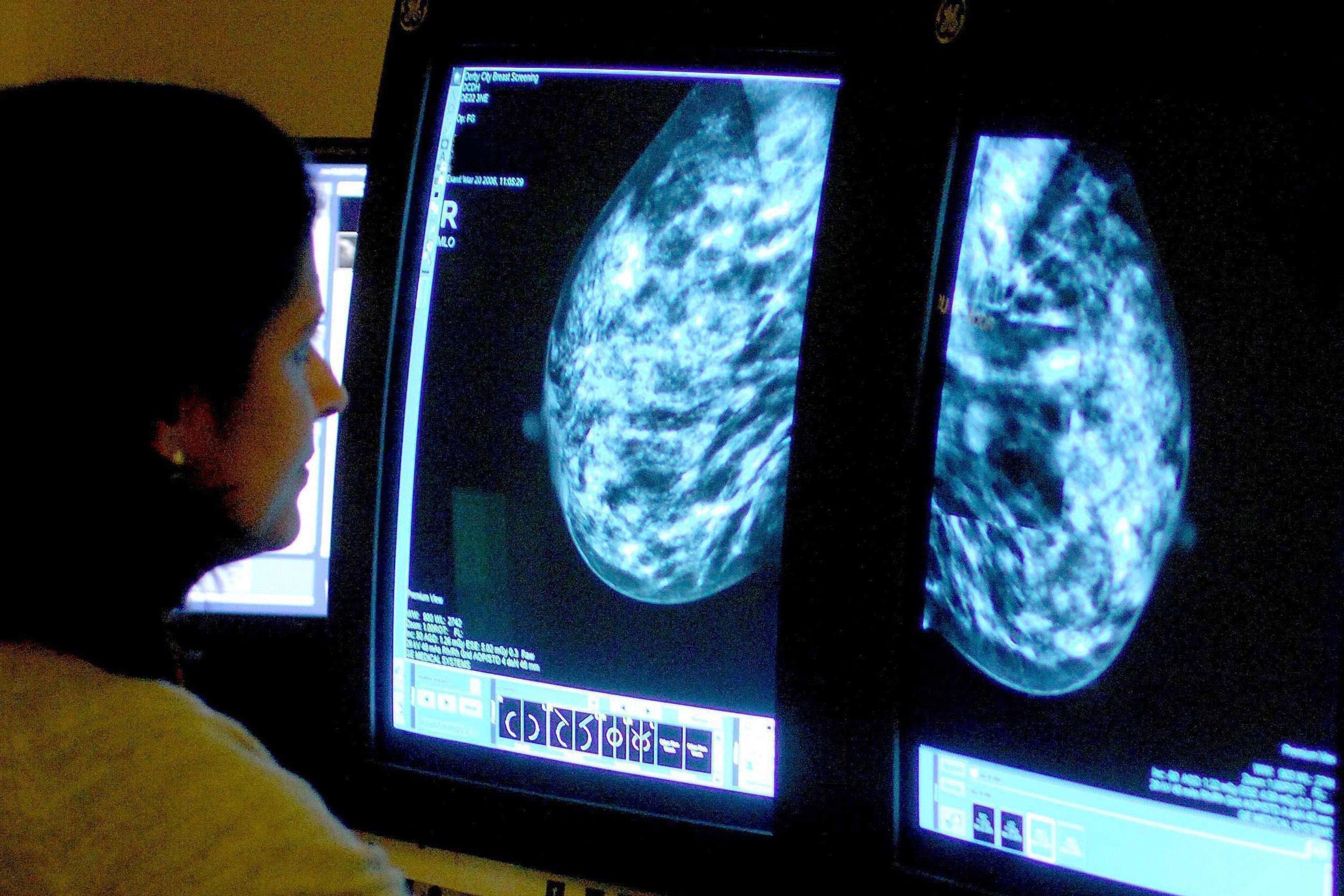‘Landmark moment’ in breast cancer treatment could save thousands of lives each year
‘The treatment is far less debilitating than chemotherapy and I’ve been given the gift of a longer life,’ says one patient

Breast cancer patients will have “precious extra time with their loved ones” after a landmark breakthrough in treatment that could prolong lives.
Scientists hailed the moment as a “major success story for UK science” that could help around 8,000 women in Britain every year.
A targeted drug for those with advanced forms of the disease reduced tumours as well as doubling the length of time patients have before their disease develops.
A phase III clinical trial of capivasertib alongside hormone therapy suggests the combination could become the new treatment for patients with advanced forms of the most common type of breast cancer.
The findings, presented at the San Antonio Breast Cancer Symposium on Thursday, are relevant for around seven in 10 of all new breast cancer cases.
Dr Kotryna Temcinaite, of Breast Cancer Now, a leading charity, said: “Understanding how we can keep incurable breast cancer under control when it stops responding to existing treatments is vital to help more people live longer with the disease.
“These encouraging results suggest a new way to treat patients with advanced ER positive HER2 negative breast cancer giving them precious extra time with their loved ones before the disease progresses.
“We hope that people can start benefiting from this treatment combination as soon as possible.”
Linda Kelly, who is from Milton Keynes, joined the trial at the Royal Marsden in August 2021 after her breast cancer spread to her bones and chest wall.
The 65-year-old said: “The results have been amazing. There has been a substantial reduction in my disease, my cancer has not progressed, and I haven’t had any new tumours.
“The treatment is far less debilitating than chemotherapy and I’ve been given the gift of a longer life.”
Capivasertib is being manufactured by pharmaceutical giant AstraZeneca in the wake of a programme of drug discovery research at the Institute of Cancer Research (ICR) in London. The drug’s novel action blocks activity of the cancer-driving protein molecule AKT.
Breast cancer is the most prevalent type of cancer in the UK and the disease claims around 11,500 women’s lives every year.
The results have been amazing. There has been a substantial reduction in my disease, my cancer has not progressed, and I haven’t had any new tumours.
Around 55,000 women are diagnosed with breast cancer in Britain each year, with approximately one in five of these being triple negative. Younger women and black women are more likely to develop this form of breast cancer, which is generally more aggressive.
Professor Nick Turner, who is the trial leader, said: “This is a fantastic finding for patients with breast cancer.”
Professor Turner, who is a consultant oncologist at the Royal Marsden and a professor of molecular oncology at the ICR, noted “even with the best current treatments, people with this type of advanced breast cancer will eventually see their cancer stop responding to treatment, and it will progress”.
He added: “We’re delighted that this potential first-in-class drug combined with hormone therapy can lower the progression of these advanced cancers, and in almost a third of cases can shrink tumours.
“We believe this new treatment could allow more women and men to live well and live longer with breast cancer.”
One in seven women in Britain will develop breast cancer at one point in their life – with one woman diagnosed every 10 minutes.
Professor Kristian Helin, chief executive of the ICR, said: “This is a landmark moment for the treatment of advanced forms of the most common type of breast cancer.
“It’s incredibly exciting to see a drug that was discovered following research conducted at the ICR now show remarkable benefits for patients in a phase III trial. Capivasertib could offer a completely new treatment option for these patients.
“This is a major success story for UK science – the discovery and development of capivasertib showcases the benefits of collaboration between academia, charities and industry to bring game-changing new treatments to people with cancer as quickly as possible.”
Prof Helin said he hoped longer-term follow-up of results would demonstrate patients lived longer on the new drug combination.
He added: “But the existing findings are already strong enough for capivasertib to be submitted to regulators to be considered for approval as a new breast cancer treatment”.
Researchers in the ICR have spent several years working on the science behind getting this kind of drug to work.
AstraZeneca then developed the drug in the hope of potentially using it on several cancers.
Breast Cancer Now calls for women to examine their breasts for cancer at least every six weeks as getting an early diagnosis can stop women dying from the illness. The charity notes those who need help can speak to their expert nurses by calling their free helpline on 0808 800 6000.
Additional reporting by wires




Join our commenting forum
Join thought-provoking conversations, follow other Independent readers and see their replies
12Comments